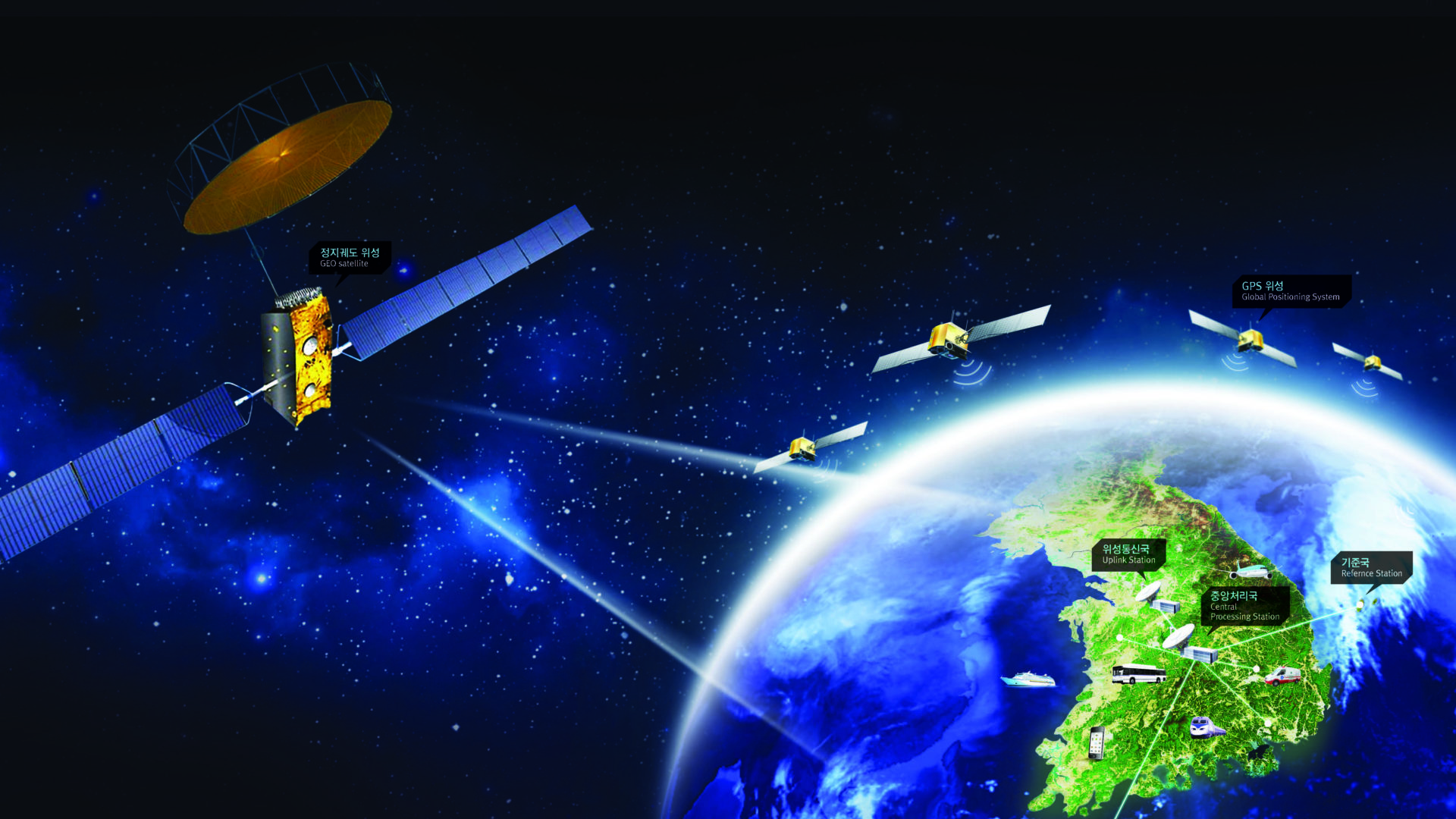KASS in operation. What do we expect from it?


This article uncovers the latest developments in the Korean GNSS sector focused on the approaching launch of the Korea Augmentation Satellite System (KASS). It was contributed by Dr Gi Wook Nam – the Director of the SBAS R&D Division at the Korea Aerospace Research Institute (KARI). Dr Nam holds a PhD in Aeronautical Engineering from Cranfield University and has worked in the domains of Aeronautical Engineering and GNSS since 1988.
KARI’s expectations for the national SBAS
The Korean SBAS (Satellite Based Augmentation System), also known as KASS (Korea Augmentation Satellite System), is currently being developed under the management of Korea Aerospace Research Institute (KARI). SBAS is widely appreciated as a system whose location correction capability using geostationary satellites makes it possible to provide accurate location information to within several meters. The more accurate location information from SBAS with great reliability is expected to develop its own business sector and bring technological advancements to various industries including but not limited to aviation, transportation, surveying, timing, etc.
Benefits for aviation
However, most of all, the significant benefit from KASS is that the system will be able to provide a certified APV-I service consistent with ICAO’s SARPs to the civil aviation users in the Korean airspace. In particular, this means that KASS could become the primary means of navigation service for all phases of flight, ranging from en-route through precision approach within the coverage area. Consequently, the aircraft will be able to configure their routes more directly and make their flights as short as possible between the departure airports and destinations. It will ultimately improve the airspace capacity and will relieve congestion while reducing fuel consumption and pollution. Additionally, KASS is going to provide a huge benefit over the conventional navigation infrastructure. Due to its limited coverage, the traditional ground infrastructure is unable to provide continuous service over a large area, requiring each airport to set up its own ground navigation systems. On the other hand, KASS will be able to provide continuous service in the entire Korean peninsula upon operation.
The completed steps
To fully realise these advantages, the government launched the Korean SBAS Programme in 2013 and subsequently assigned KARI as the Programme Management Office the following year. After a several-years-long phase of defining system requirements and contract awarding, Thales Alenia Space – a French developer – was selected as the prime contractor to develop and deploy the system jointly with KARI. Shortly after entering into the contract, both parties had a kick-off meeting to review the entire development process and establish communication methods. By 2017, the System Design Review (SDR) and the Preliminary Design Review (PDR) were successfully completed. Later that same year, some Korean engineers started to be dispatched to France to work with the French engineers as part of the technology transfer.
The journey ahead
More recently, the Critical Design Review (CDR) was completed, which had examined algorithm design and system performance. Site preparation activities – including site survey and construction – have been carried out nationwide for all seven reference stations, two control stations, and three uplink stations. Once the selected sites are prepared and all the equipment is installed, the Site Acceptance Test (SAT) is planned to take place in the last quarter of 2020 to verify whether the site condition complies with the requirements. With the completion of SAT, system integration and verification will be carried out and finalised by 2022. The System Qualification Review (SQR) is scheduled for late 2022, and the KASS system is expected to be declared operational for its open service with its full operational capability that same year. Subsequently, KASS is due to start delivering a Safety of Life (SoL) service for aviation from 2023.
The Malaysian Measat-3D was selected in January 2019 as the first KASS satellite. The satellite was built by Airbus Defence and Space and will be launched by Arianespace between December 2021 and January 2022. The selection of the second KASS satellite will be completed by the end of December 2020.
Expected increase in demand from UAVs
When certified for the target of APV-I SoL service, KASS will provide the high level of integrity required for most aviation navigation operations and will become a key technology for improving the efficiency of airspace operations in Korea.
With many application platforms being available for KASS, it is believed that the demand for the accurate positioning in Unmanned Aerial System (UAS) is increasing particularly dramatically. As UAS are being used in a variety of industries, including logistics, aerial surveying, and agriculture, the concerns over flight safety are also growing. Thus, it is highly beneficial that KASS should be able to enhance flight safety of UAS by offering position accuracy within several meters.